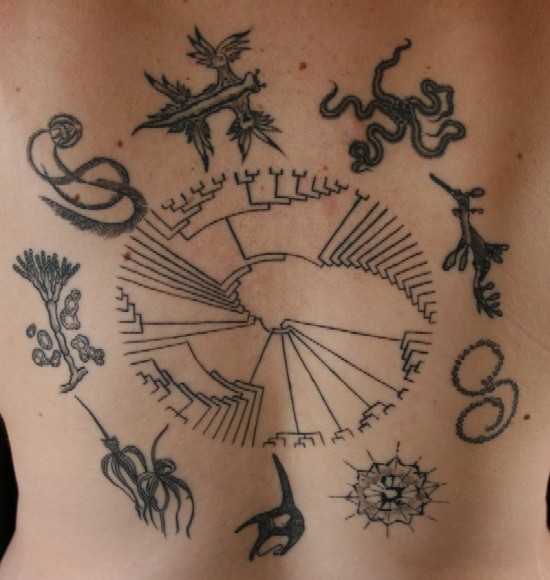Tal, that was lovely... thank you. Love Little River Band too. This song has always had special meaning for me. I, too, was born in the sign of water.
Why,, why? Is our species so disrespectful of others ???
Well, I think religion plays a part here. There seems to be a belief that all the Earth was made for us humans. Scriptures like 'subdue the Earth' point to that. Instead, we are just one tiny part of a vast and varied amount of life on this planet. Not everything here was made for us.
We should be Guardians, not destroyers. It is possible for us to live sustainably. There are people and whole communities doing it today (example: Village Homes in Davis, California: http://www.villagehomesdavis.org/
http://www.youtube.com/watch?v=OSsCvpDbMW8
Destruction of habitat needs to cease. What we do to the Earth and the other species we share this planet with comes back to us.
A new report out this week states that within 20 years, normal infections are going to be killing a large majority of us off because the antibiotics we have today will be ineffective or not available ( http://www.thestar.com/news/world/article/1319438--drug-resistant-infection-threat-sparks-warnings-of-apocalyptic-scenario ). It seems nature has a way of restoring balance.
Text of The Star news article linked above:
Drug-resistant infections could pose ‘apocalyptic scenario’, medical experts warn - Published on Friday January 25, 2013
Jennifer Yang - Global Health Reporter
Imagine a world where knee surgery is a potentially life-threatening procedure and you will begin to understand the “apocalyptic scenario” described by Britain’s chief medical officer.
On Wednesday, Dame Sally Davies warned a U.K. parliamentary committee about the dangers of antibiotic drug resistance, a threat so dire she wants it added to Britain’s register of civil emergencies — alongside other dangers such as terrorist threats, pandemic influenza and natural disasters.
“The apocalyptic scenario is that when I need a new hip in 20 years, I’ll die of a routine infection because we’ve run out of antibiotics,” Davies said. “It’s very serious because we are not using our antibiotics effectively in countries.”
This is not the first time Davies has used dramatic language to describe antibiotic drug resistance — she has previously called it a threat as serious to mankind as global warming.
Nor is Davies alone in sounding the alarm; warning flags have been raised everywhere from the pages of leading medical journals to the World Health Organization. And earlier this month, the World Economic Forum included antibiotic drug resistance in its Global Risks 2013 report, calling it “arguably the greatest risk of hubris to human health.”
“Many people take for granted that antibiotics will always be available when we need them, but soon this may no longer be the case,” the report stated.
Dr. Margaret Chan, director-general of the World Health Organization, puts it much more starkly: “A post-antibiotic era means, in effect, an end to modern medicine as we know it. Things as common as strep throat or a child’s scratched knee could once again kill.”
The threat of drug resistance has been looming for as long as there have been antibiotics. In 1945, Alexander Fleming — discoverer of penicillin — told the New York Times his drug should be used sparingly to slow bacterial resistance.
One might say the story of antibiotic resistance was first told by Charles Darwin — natural selection ensures that antibiotic-resistant bacteria will be the ones to survive, multiply and proliferate.
The evolutionary process has been sped along, however, by the widespread overuse of antibiotics — in the United States, more than three million kilograms of antibiotics were given to patients in 2009, according to an editorial in The New England Journal of Medicine published Thursday.
So now the world is grappling with emerging diseases such as drug-resistant gonorrhea, extremely drug-resistant tuberculosis, and superbugs that cause unnecessary deaths from hospital-acquired infections.
Part of the problem is that medical progress has actually increased our dependence on antibiotics, said microbiologist Allison McGeer, head of infection control at Mount Sinai hospital.
“Sixty years ago, you just died of cancer; now we can treat you for cancer but infections are a side effect of that,” she said. “And surgeries — we use antibiotics with almost every surgery we perform to reduce the risk of infection afterwards.”
As bacteria become more resistant, the pipeline for new drugs has also been drying up. According to the World Economic Forum report, no new classes of antibiotics have been discovered since 1987.
The existing market model simply doesn’t work, McGeer said. Pharmaceutical companies profit more from drugs used to treat chronic diseases, not antibiotics that patients use for just a few days, she said.
Whatever the solution, it will be a complicated one — and prevention will have to be a cornerstone.
“The most effective way of not using antibiotics is to not have the infection in the first place,” McGeer said.
